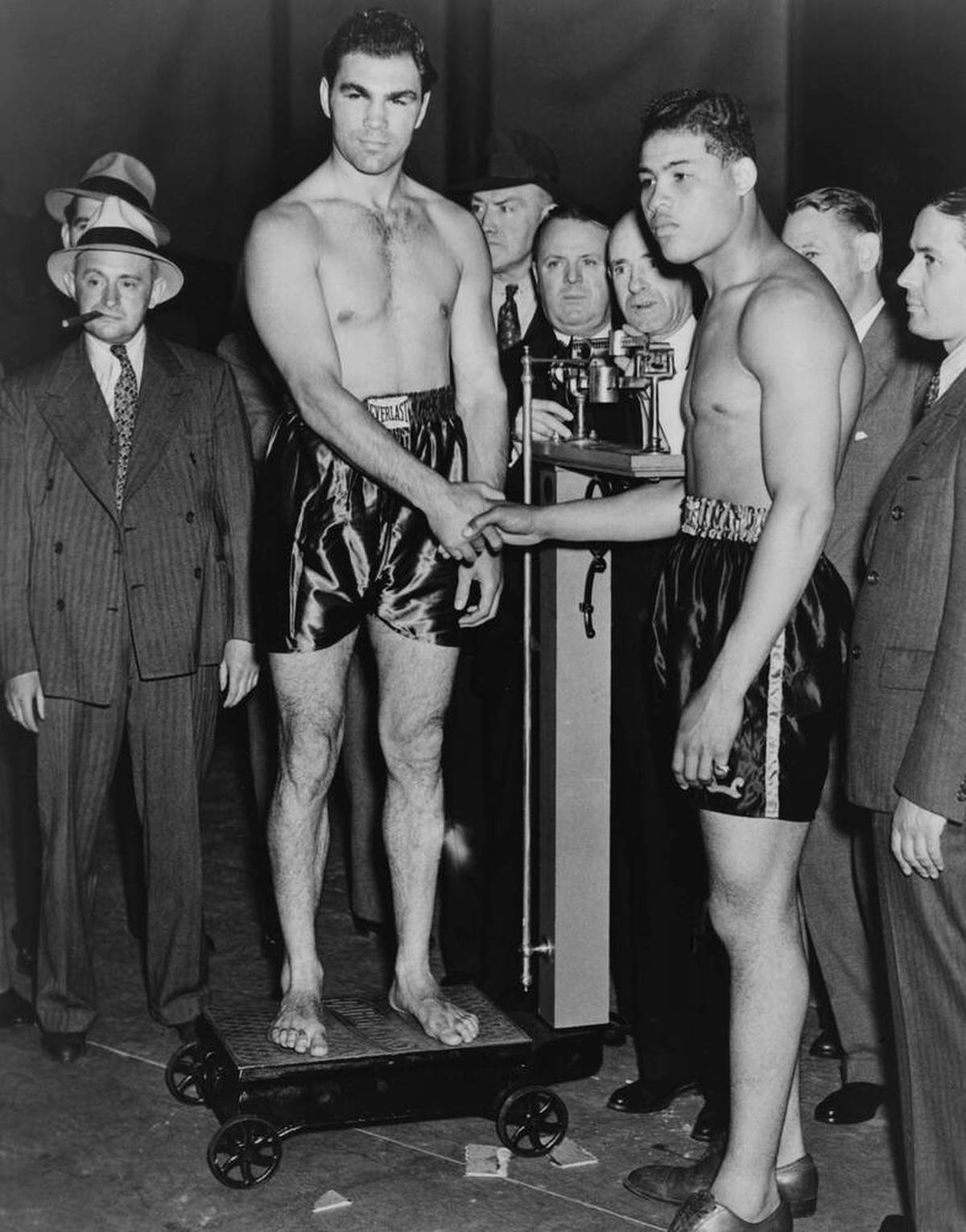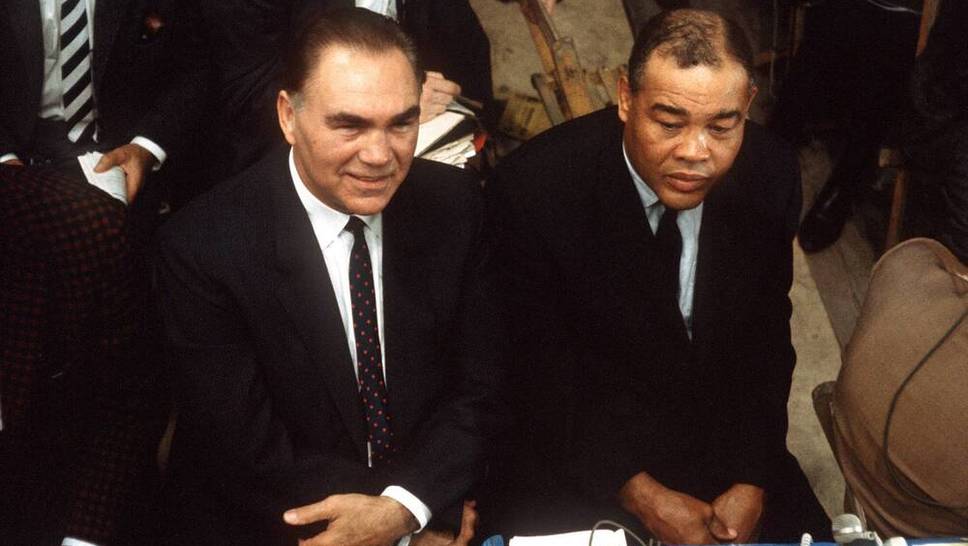On June 19, 1936, German boxing legend Max Schmeling shocked US star Joe Louis – to the delight of Adolf Hitler. The politically explosive rivalry turned into an inspiring friendship
It was one of the biggest sensations in boxing history. And the beginning of a special and historically remarkable friendship that lasted until death. On June 19, 1936 – 88 years ago today – the German boxing legend Max Schmeling met the American Joe Louis, who was considered unbeatable, in New York.
It was a highly explosive rivalry, politically charged by the seizure of power by Adolf Hitler and the National Socialists in Schmeling’s home country. In the run-up to the Second World War, the fight was hyped up as a duel between systems, between totalitarian dictatorship and liberal democracy. In reality, however, the constellation was much more complex
MAX SCHMELING SEEMED TO BE ON THE DOWNSWING BEFORE THE FIRST FIGHT IN 1936
Schmeling took a distanced view of the Nazi regime, Louis, who was revered by the African-American community, was also a symbolic figure of discord at a time when racial segregation was still in force in many parts of the country – and even jubilant reports about Louis often had racist undertones. His nickname “The Brown Bomber” is just one of many attributions that are taboo today.
In sporting terms, the fight seemed to be a clear-cut affair: Louis, then 22 years old, was on the way up, Schmeling seemed to be on the downswing after losing the world title he had won from Jack Sharkey in 1930. 42,000 spectators in the New York Yankees’ baseball stadium wanted to see the then 31-year-old go down against Louis – but things turned out differently
SCHMELING RECOGNIZED LOUIS’ WEAKNESS – AND ANNOUNCED IT
While Louis took a rather lax approach to preparing for the fight, taking time to learn golf on the side, Schmeling was well prepared: He had identified a weak point in Louis – which he even announced publicly. He was hardly taken seriously. Talk to attract attention, many thought.

Schmeling, however, had actually known what he was doing: Louis always left his left hanging after a punch – Schmeling saw the opportunity for effective counter-punches. The baffled Louis had no answer to Schmeling’s tactics and was knocked out in the twelfth round after two rights to the body and chin. Louis had to admit afterwards that he had underestimated his opponent
SCHMELING DISTANCES HIMSELF FROM THE NAZI REGIME
Schmeling’s triumph, which fitted perfectly into the racist world view of Nazi propaganda, was exploited accordingly. “It was a German victory”, announced the evil propaganda minister Joseph Goebbels, and the Berliner Lokalanzeiger ran the headline: “The Führer congratulates Schmeling”. The aforementioned Adolf Hitler sent flowers to Schmeling’s wife.
The fact that Schmeling’s good reputation continued in the post-war period was due to the fact that he took the appropriation with comparative reserve. Although Schmeling thanked the people and the Führer, he did not let it go beyond a certain point: He did not join the NSDAP, kept his Jewish manager Joe Jacobs, even refused to honor Hitler. “I’m a boxer, not a politician,” was one of his most famous phrases. And in his case, this distancing was no empty phrase.
It later emerged that Schmeling even actively helped victims of Hitler’s regime: in 1938, during the November pogroms, he hid two Jewish youths in his hotel room and helped them to escape. This only became known in 1989 when the rescued brothers came forward in the USA.
JOE LOUIS MAKES SHORT WORK OF REVANCHE IN 1938
Remarkably, it was not Schmeling but loser Louis who rose to challenge world champion James J. Braddock – after dethroning him, revenge against Schmeling was a priority for the young champion.
The world championship fight between Schmeling and Louis took place on June 22, 1938, again in the Yankees Stadium and attracted even more attention: the 70,000 fans included Hollywood superstars Clark Gable, Gary Cooper, Gregory Peck and Douglas Fairbanks.
Schmeling had no chance this time, Louis had become a mature world-class athlete – who won by knockout after just two minutes. Schmeling only managed two strikes. Nobody would have won against his father that day, Schmeling later told Louis’ son.
As charged as their duel was, the personal relationship that developed between Schmeling and Louis was remarkable: the two remained in contact after a reunion after the Second World War. Schmeling also supported Louis when he fell on hard times after the end of his career and found himself in great financial need.
The friendship lasted until Louis’ death on April 12, 1981, and Schmeling – who died in 2005 at the age of 99 – was among the pallbearers.

